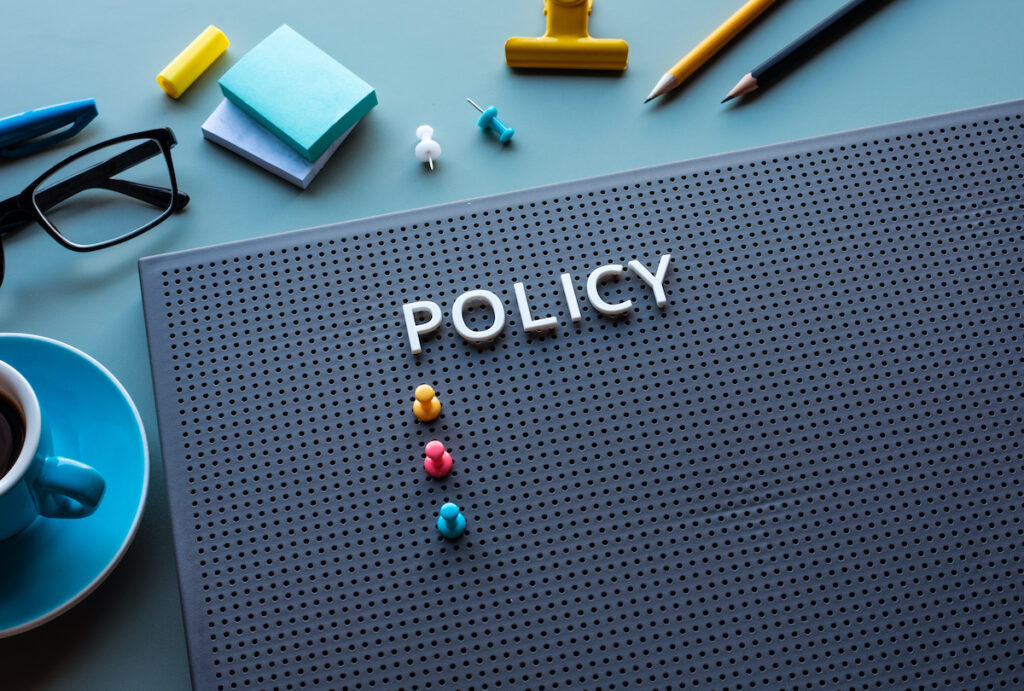A migrant is “an individual who strikes away from his or her place of common residence” (United Nations, 1980). Virtually half of the world’s worldwide migrant inhabitants is feminine (Boyd, 2021). Feminine migrants are at a better threat of diagnosable psychological health-related sicknesses in comparison with male migrants (e.g., Bermejo et al., 2012; Hacker et al., 2011). Such situations embrace Publish-Traumatic Stress Dysfunction (PTSD) and perinatal despair (Nyikavaranda et al., 2023). Regardless of this, most migration analysis has primarily centered on males (Llácer et al., 2007).
The present systematic evaluation by Patrick Nyikavaranda et al. (2023) addresses a big analysis hole by specializing in the experiences of feminine migrants in Europe, reasonably than the historically male-centric perspective. The research explores the limitations and facilitators that feminine migrants encounter when in search of psychological well being (MH) help, offering a much-needed feminist lens on the problem, highlighting the distinctive challenges and help mechanisms for feminine migrants.

Migration analysis has predominantly centered on male migrants’ experiences, overlooking the feminine expertise, however practically half of the world’s worldwide migrant inhabitants is feminine.
Strategies
The research adopted the Most popular Reporting Objects for Systematic Opinions and Meta-analyses (PRISMA) pointers (Web page et al., 2020), and the evaluation protocol was registered on PROSPERO (CRD42021235571). The evaluation centered on research that:
Included feminine migrants, asylum seekers, or refugees, with knowledge on feminine experiences.
Addressed widespread psychological well being situations (e.g., PTSD, despair, anxiousness problems).
Examined limitations and facilitators to accessing formal (i.e., skilled) and casual psychological well being help.
The SPIDER search software (Pattern, Phenomenon of Curiosity, Design, Analysis, Analysis Sort) was used to tell the search technique and establish qualitative and mixed-method research (Cooke et al., 2012) throughout six digital databases. Key phrases included feminine migrants, psychological well being, entry, main care, and group well being providers in Europe.
Titles and abstracts had been independently screened by two reviewers (AT and PN), with full-text evaluations performed for inclusion. The method concerned additional evaluation by extra 4 staff members (CDL, CJJ, PP, and MP) to make sure the suitability of research for inclusion. The settings thought-about had been main care and group care, specializing in complete providers to fulfill the vast majority of well being wants. In complete, 17 research had been included within the present evaluation.
The Blended Strategies Appraisal software (MMAT) was used to appraise the reporting of included research critically, and the Feminist High quality Appraisal Instrument (Morgan et al., 2017) was employed to analyse gender-specific limitations and facilitators, incorporating transnational, intersectional, and decolonial views. The 2 reviewers, AT and PN, independently assessed the MMAT and located no vital variations of their assessments. Concerning battle decision, the ultimate inclusion of research was decided after any disagreements or inconsistencies between the reviewers had been mentioned and resolved by means of session with extra staff members (CDL, CJJ, PP, and MP). No papers had been excluded attributable to research high quality, and all of the papers had been assessed as having good research high quality primarily based on the research design.
Outcomes
The research recognized a number of limitations to accessing psychological well being help for feminine migrants, together with lack of entry to acceptable info, cultural limitations, stigma, structural obstacles, and gender-specific limitations. However, potential facilitators included gender-appropriate/delicate providers, culturally acceptable providers, gender-specific help, and involvement of non secular leaders.
Obstacles
Entry to Data: Many feminine migrants lack consciousness about obtainable psychological well being providers and tips on how to entry them. This lack of awareness prevents them from in search of the assistance they want.
I don’t assume they inform us like early sufficient, while you’ve came upon then they inform you. I believe there must be one thing the place you discover out earlier than just a little. (FG, Younger feminine) (Kiselev et al., 2020)
Cultural and Religious Obstacles: Cultural beliefs and religious practices can act as limitations to accessing psychological well being help attributable to differing understandings of psychological well being and stigma related to help-seeking.
Stigma: The psychological well being stigma each inside migrant communities and within the broader society discourages girls from in search of help. Concern of being judged or misunderstood additional exacerbates this downside.
my buddy…by no means tells her mother something [about her mental health problems] and he or she at all times bottles it up and he or she simply…thinks of her mum getting upset (FG2, Lady 1) (Ali et al., 2017)
Structural Obstacles: Authorized and administrative hurdles, equivalent to restrictive immigration insurance policies and lack of authorized standing, additional restrict entry to healthcare providers. Financial constraints, equivalent to lack of insurance coverage and monetary instability, additionally play a big position.
Gender-Particular Points: Gender-specific limitations embrace extra caregiving tasks, concern of discrimination, and experiences of gender-based violence, stopping girls from prioritising their wellbeing.
Facilitators
Religiosity: For a lot of feminine migrants, their religion and non secular practices function sources of consolation and help. Religiosity can present resilience and a way of group, serving to girls address psychological well being challenges.
Group and Spiritual Leaders: Leaders inside migrant communities and non secular teams play a vital position in facilitating entry to psychological well being help. They’ll present steering, advocate for psychological well being consciousness, and join people with assets.
Gender-Delicate Help: Companies which can be tailor-made to the particular wants of feminine migrants, equivalent to these providing gender-sensitive help, assist in addressing psychological well being points successfully. These providers contemplate cultural contexts and supply a secure house for girls.
Schooling Settings as Facilitators: Academic establishments had been seen as vital facilitators by offering psychological well being training and help providers. Colleges and different academic settings can supply assets and create consciousness amongst feminine migrants and their households.
Resilience and Adaptability: The resilience and adaptableness of feminine migrants play a big position of their psychological well being. Many ladies demonstrated robust coping mechanisms and the flexibility to adapt to new environments, which helps them navigate psychological well being challenges.
The best way I see Somali girls is, is that they’re actually robust… Most of them are single moms, and the way in which they cope is unbelievable, it’s unbelievable. I imply, they fight their finest, yeah? And most of them don’t have any households round in any respect, it’s solely them. (Aisha, Group 2) (Whittaker et al., 2005)

Gender-sensitive care provision is important to successfully handle psychological well being difficulties skilled by feminine migrants.
Conclusions
The research underscores the need for culturally and gender-sensitive approaches to psychological well being help, emphasising the position of group networks and training in bridging the hole. By specializing in feminine migrants’ distinctive experiences, this systematic evaluation supplies helpful insights for policymakers and healthcare suppliers to develop simpler, inclusive psychological well being providers.

The findings advocate for a multi-faceted technique to deal with the advanced interaction of things influencing psychological well being help entry for feminine migrants.
Strengths and limitations
The present evaluation supplies a complete and inclusive evaluation of the limitations and facilitators to psychological well being help amongst feminine migrants in Europe, addressing a vital hole in historically male-centric migration analysis. The strengths of the evaluation lie in its adherence to PRISMA pointers, the usage of a feminist lens, and the broad inclusion of research from a number of European nations, which collectively guarantee a radical understanding of the distinctive challenges confronted by feminine migrants.
The evaluation is each clinically related and well timed, notably within the context of ongoing international migration traits and the rising range inside European populations. The psychological well being of migrants is a vital public well being problem, with feminine migrants typically going through distinctive challenges that exacerbate their threat of MH situations (Nyikavaranda et al., 2023). The relevance of this analysis is underscored by the truth that psychological well being help methods in Europe are sometimes ill-equipped to fulfill the particular wants of those populations, resulting in disparities in entry to care and outcomes (Ingleby, 2012).
Nonetheless, the evaluation additionally has limitations that should be acknowledged. The research could also be topic to language and publication bias, primarily together with research revealed in English and accessible by means of particular databases, probably excluding related analysis in different languages or much less accessible sources. The cross-sectional nature of most research limits the flexibility to attract conclusions about long-term traits and impacts, highlighting the necessity for extra longitudinal analysis. Moreover, the deal with Europe means the findings is probably not straight relevant to feminine migrants in different areas with completely different healthcare methods and sociopolitical contexts.
Using instruments just like the Blended Strategies Appraisal Instrument (MMAT) and the Feminist High quality Appraisal Instrument ensured rigorous high quality evaluation, however the lack of debate on potential biases equivalent to publication bias weakens the general reliability of the outcomes. Furthermore, whereas the evaluation’s authors mixed the outcomes fairly nicely, the implications of excessive heterogeneity amongst research may have been explored extra totally.

The shortage of longitudinal knowledge limits the findings generalisability over time, whereas the deal with European settings would possibly prohibit the applicability of those outcomes to different social contexts.
Implications for apply
The evaluation emphasises the significance of offering culturally delicate psychological well being providers and coaching healthcare suppliers to turn into extra culturally competent and handle the distinctive wants of feminine migrants. Companies want to supply interpretation providers but additionally increase consciousness on psychological health-related cultural beliefs and practices inside minoritised immigrant communities (Nyikavaranda et al., 2023). Contemplating the significance of stigma, group and non secular leaders may play a vital position in selling psychological well being consciousness, encouraging support-seeking behaviours inside their communities and constructing bridges with native providers. Coaching leaders to supply preliminary help and referrals can improve belief and acceptance of psychological well being providers (Nyikavaranda et al., 2023; Boyd, 2021).
Companies tailor-made particularly to deal with gender-specific points, equivalent to experiences of gender-based violence and caregiving tasks, are important. Creating secure areas for girls and providing providers that contemplate these elements can enhance psychological well being outcomes. Integrating psychological well being help with different providers, equivalent to maternal and youngster well being, can present a holistic strategy to care (Llácer et al., 2007; Nyikavaranda et al., 2023).
Service growth initiatives to creating simply accessible info in a number of languages are wanted to bridge entry gaps. This may transcend localised assets to info campaigns concentrating on feminine migrant communities to boost consciousness (Nyikavaranda et al., 2023; Llácer et al., 2007). Policymakers ought to contemplate reforms on immigration insurance policies that simplify the method for feminine migrants to entry healthcare providers, no matter their authorized standing. Collaboration between healthcare suppliers and authorized support organisations may present complete help to navigate these limitations (Hacker et al., 2011; Bermejo et al., 2012).
On a person degree, clinicians can additional help feminine migrants in accessing psychological well being care by adopting culturally delicate practices and fostering belief. Constructing robust therapeutic relationships by means of energetic listening and demonstrating cultural competence might help alleviate fears and distrust that many feminine migrants might have in direction of healthcare methods. Clinicians must also be proactive in providing translation providers and guaranteeing that every one communications are accessible to non-native audio system, thus eradicating language limitations on the level of care (Llácer et al., 2007).

Empowering feminine migrants by means of culturally delicate psychological well being providers and group engagement results in higher integration and well-being.
Assertion of pursuits
No conflicts of curiosity to declare.
Hyperlinks
Major paper
Nyikavaranda, P., Pantelic, M., Jones, C. J., Paudyal, P., Tunks, A., & Llewellyn, C. D. (2023). Obstacles and facilitators to in search of and accessing psychological well being help in main care and the group amongst feminine migrants in Europe: a “feminisms” systematic evaluation. Worldwide Journal for Fairness in Well being, 22(1), 196.
Different references
Ali, N., McLachlan, N., Kanwar, S., & Randhawa, G. (2017). Pakistani younger folks’s views on limitations to accessing psychological well being providers. Worldwide Journal of Tradition and Psychological Well being, 10(1), 33-43.
Bermejo, I., Frank, F., Maier, I., & Hölzel, L. P. (2012). Well being care utilisation of migrants with psychological problems in contrast with Germans. Psychiatrische Praxis, 39(2), 64-70.
Boyd, M. (2021). Ladies, gender, and migration traits in a world world. The Palgrave handbook of gender and migration, 19-36.
Cooke, A., Smith, D. M., & Sales space, A. (2012). The advantages of a scientific search technique when conducting qualitative proof synthesis; the SPIDER software. Qualitative Well being Analysis, 22(10), 1435-1443.
Hacker, Okay., Chu, J., Leung, C., Marra, R., Pirie, A., Brahimi, M., … & Marlin, R. P. (2011). The impression of immigration and customs enforcement on immigrant well being: perceptions of immigrants in Everett, Massachusetts, USA. Social science & medication, 73(4), 586-594.
Ingleby, D. (2012). Ethnicity, migration and the ‘social determinants of well being’agenda. Psychosocial Intervention, 21(3), 331-341.
Kiselev, N., Pfaltz, M., Haas, F., Schick, M., Kappen, M., Sijbrandij, M., … & Morina, N. (2020). Structural and socio-cultural limitations to accessing psychological healthcare amongst Syrian refugees and asylum seekers in Switzerland. European journal of psychotraumatology, 11(1), 1717825.
Llácer, A., Zunzunegui, M. V., Del Amo, J., Mazarrasa, L., & Bolůmar, F. (2007). The contribution of a gender perspective to the understanding of migrants’ well being. Journal of Epidemiology & Group Well being, 61(Suppl 2), ii4-ii10.
Web page, M. J., McKenzie, J. E., Bossuyt, P. M., Boutron, I., Hoffmann, T. C., Mulrow, C. D., … & Moher, D. (2021). The PRISMA 2020 assertion: an up to date guideline for reporting systematic critiques. bmj, 372.
United Nations. Statistical Workplace. (1980). Suggestions on statistics of worldwide migration (No. 58). UN.
Whittaker, S., Hardy, G., Lewis, Okay., & Buchan, L. (2005). An exploration of psychological well-being with younger Somali refugee and asylum-seeker girls. Scientific Youngster Psychology and Psychiatry, 10(2), 177-196.








